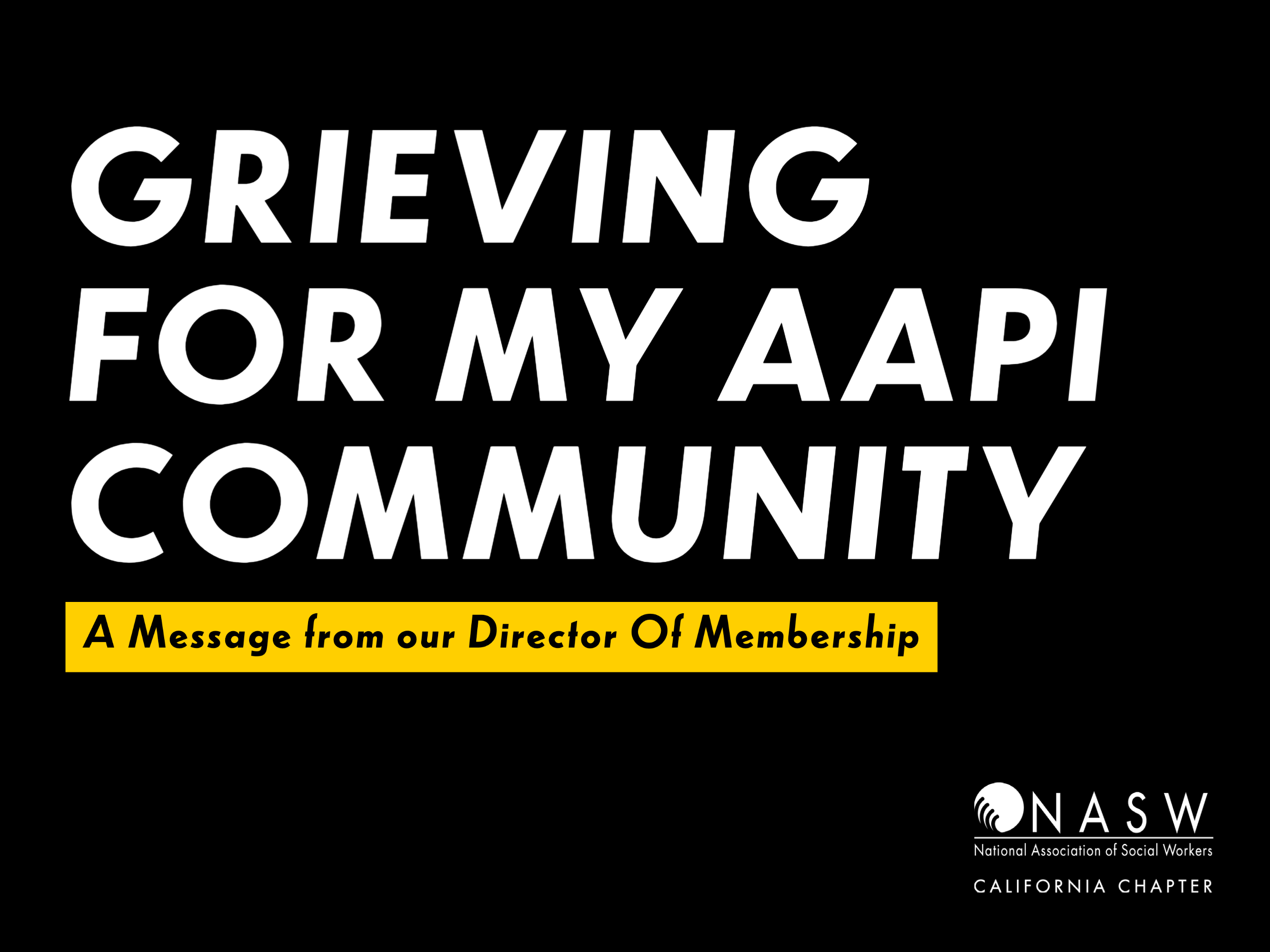
By S. Jolene Hui, MSW, LCSW
NASW-CA Director of Membership
March 17 is difficult for me every year. My father died in 2014 not very long after he turned 55. And before he met my four-month old daughter who was his long-awaited and first granddaughter. I carry heavy grief every March since then.
This year on March 17 after a year of a pandemic hell, overwhelming amounts of death, grief that won’t stop, and violence fueled by white supremacy – a white male terrorist shot and killed multiple people in various locations in the greater Atlanta area – the majority were of AAPI descent.
Yes, they were hate crimes.
Yes, they were against AAPI people.
My father was a Chinese-American immigrant who came to this country as a young teen in the 1970s. He was thrown into a junior high school in Boise, Idaho when he didn’t know any English. He faced harsh treatment and bullying. As a result, he wanted his biracial daughters to be as ‘American’ as possible. We never learned Cantonese. Eliminating this language, however, did not make me white and only left me feeling disconnected from the Chinese culture and my own identity. I still remember a horribly mean child spitting on my head in an elementary school restroom and putting her fingers on the side of her eyes moving them up and laughing.
I never told my dad that happened. I was embarrassed. And I knew he would tell me to fight back. My sister got the fists in the family. I sat in silence whenever anyone threw insults or spit at me.
My true AAPI identity didn’t form until I moved from Boise to San Diego when I was 23. It was there I was exposed to the culture I had been craving to be a part of since I was a child. I found a home with San Diego Asian American Repertory Theatre where I acted and served as a Literary Associate until I moved to Los Angeles in 2006 and served on the Literary Committee for East West Players for a number of years.
I’m not going to spend paragraphs or even sentences giving you historical instances of violence against AAPI people. The list is too extensive and dates back for centuries. From its inception this country has operated on violence and oppression. We live in a society that is structured to oppress and this is the violence and sadness we live in every day.
We are taught in social work school to be the change. That we as social workers are advocates. We know that social justice is in our Code of Ethics and that it is in our blood to help vulnerable communities and that dismantling these systems are key. We always have an urge to fight and to take action. We are always planning next steps.
The day after the shootings I had a session with a client which led me to realize something for myself. The client didn’t want to do anything right now. The client was sick of being responsible for everyone else’s education and sick of being responsible to create the change needed. As an AAPI person and advocate they just wanted a break from it. I told them to pause and grieve. I told them to take a break, process, and cry. I told them to just be.
I need to just be.
And for my AAPI community – you don’t owe anyone anything right now. Do what’s best for you. If that best is just being…then just be.
S. Jolene Hui, LCSW, is NASW-CA’s Director of Membership and is also part-time adjunct faculty in the MSW program at California State University, Dominguez Hills where she is a foundation year field liaison.











